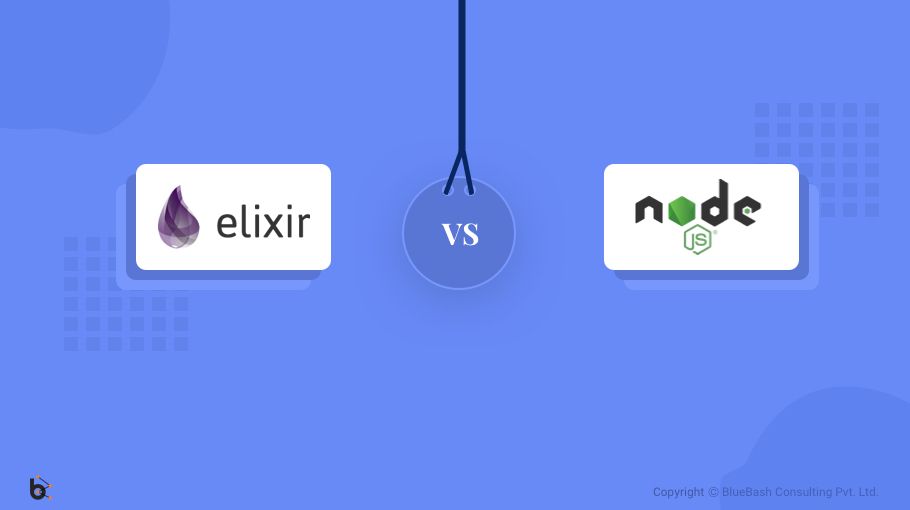Elixir vs nodejs: Difference between elixir and nodejs

“Change is the end result of all true learning - Leo Buscaglia". People always get bored from usual routine or you can say change is a human tendency. If you are from one of these people then you are at the right platform where you can learn how elixir can change your career path. Elixir is the fastest growing functional programming language as other programming languages. If you are lurking and sulking with your current programming technology and seeking for a new language to learn then you can proceed in Elixir. Before proceeding with differences, let's first discuss a little brief about Elixir and Nodejs.
Elixir as a programming language: As per the definition, Elixir is a Functional programming language which is dynamic and designed for creating scalable applications. This language allows to create of maintainable application in which syntaxes are simple, modern and tidy. Elixir was built by José Valim in 2011 who is also a developer in the open source area. Why Elixir ?
- High Concurrency
- Functional
- Scalable solution
- Highly Available
- Pattern Matching
Related read: How Elixir Continues to rise in 2020
Node.js as a programming language: An open source, JavaScript run time environment written in JavaScript to implement the code outside of a web browser. Initial version of Node.js was released in 2009 by Ryan Dahl. It is designed to build scalable network applications. Why Node.js?

Google trends of Elixir vs Node.js
As per the Google trends of past 12 months, both languages are acceptable at the same level with different technical aspects.

Elixir vs Node.js
Well, Its hard to describe the differences in between Elixir and Node.js because both languages are equally interesting and supported by developers. In the below chart we have shown some differences on the basis of technical parameters.

From above mentioned chart we can see that Node.js and Elixir react differently as per the technical parameters.
- Comparison of Speed; Elixir programming language is fast as compare to Node.js because web solutions produced through Elixir is easier. Moreover, as we know Elixir is a functional programming language, it does not contain any classes. It only contain Modules with module functions in it. Another, Elixir always forces you to build a simplified solution while searching for different ways to complete the task.
- Comparison of Server Performance; Elixir perform excellently whereas Node.js works moderately because Elixir uses a Phoenix web development framework develop applications. Such framework MVC follows a server-side model-view-controller (MVC) pattern.
- Comparison of Numerical Performance; It is said that numerical performance of the Nodejs is good as compare to Elixir because It supports the non-blocking I/O operations.
- Comparison based on debugging; It is said that debugging of the code is very difficult in the nodejs but comparatively it is super easy in the Elixir because here we have different approaches to debug the code such as IO.inspect, IO.inspect with binding, apex, IEx.pry, :debugger, :sys.get_state and :sys.get_status, Process.info, :sys.trace, Distillery commands, :observer, etc.
- Comparison based on Concurrency: Elixir can run the task simultaneously but also keeping them independent from others as well therefore it has high concurrency whereas node.js supports an ‘Asynchronous event-driven’ programming paradigm.
- Comparison based on Fault Tolerance; Elixir supports fault tolerance for two kinds of issues such as internal issues and issues from outside of the application, for instance, problems with a network. On the other hand, Nodejs doesn't support fault tolerance.
In conclusion, it is quite difficult to say which language should be chosen because every language has its functional metric which creates huge differences in web application. Therefore, we have mentioned all the metrics on which basis you can choose a language to build the required solution.
